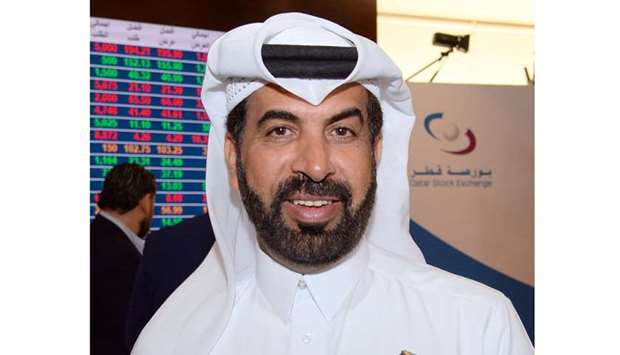The Qatar Stock Exchange (QSE), which is the first bourse in the region to launch sustainability platform three years ago, finds promising potential for high returns by integrating ESG or environmental, social and governance framework across the investment spectrum.
"If we integrate ESG across the spectrum of the investment process, there is an opportunity to generate a large scale return by becoming a regional hub for ESG investing," QSE chief executive Rashid bin Ali al-Mansoori said in a tweet.
In 2016, the QSE joined the United Nations initiative on sustainable development (SSEI). Since then, QSE has undertaken the promotion of ESG standards, which are concerned with the environment protection and support the role of companies in the fields of social responsibility and governance.
Stressing that the QSE aims to become the investment destination of choice for ESG investors; al-Mansoori said the ESG investing has become a dominant theme globally and there is sharp growth in investors’ commitment to ESG in the past few years.
He highlighted that there are 736 ESG ETFs globally benchmark various ESG indexes with assets under management or AUM of over $326bn. In 2019 the total AUMs in the ESG ETFs were just $66bn.
According to various reports, businesses are confronting new ESG-related reporting requirements in the European Union and the US may soon follow suit.
The market sources said the growing importance of the ESG could be gauged from the increasing number of signatories to the UN’s Principles for Responsible Investment as it rose from about 1,000 at the end of year 2014 to more than 3,000 at present.
At a recent meeting, QSE Director (Marketing and Communications), Hussain al-Abdulla had said Doha is strengthening efforts to advance the ESG agenda as it aims to be the investment destination for the ESG investors worldwide.
Cautioning that there can't be one size fits all, the experts in the field are of the view that data and transparency should be the critical components in the ESG chain for the sustainability of the businesses and that the ESG strategy should seamlessly be woven into the corporate strategy.
Finding that the Covid-19 has created the supply-demand shocks across verticals, sectors and geographies, they said ESG risks have now become interconnected and so, the need of the hour is for a system that will address the sustainability and resiliency aspects of the businesses.
In 2017, QSE introduced the ESG Guidance in December to assist all listed companies wishing to incorporate ESG reporting into their existing reporting processes. ESG reporting does not set aside, replace or substitute any reporting obligations of listed companies under existing laws and regulations.
Highlighting that ESG and climate investing have been growing "dramatically"; Raman Aylur Subramanian, global head (equity applied research) of MSCI, had said investors have become less tolerant of corporate ESG incidents and there is a greater understanding of ESG's influence on risk and return.
MSCI world socially responsible investing index returns outperformed the MSCI world index by 507 basis points in the first nine months of 2020, indicating that there is increasing evidence that suggests a correlation between ESG and company performance.


